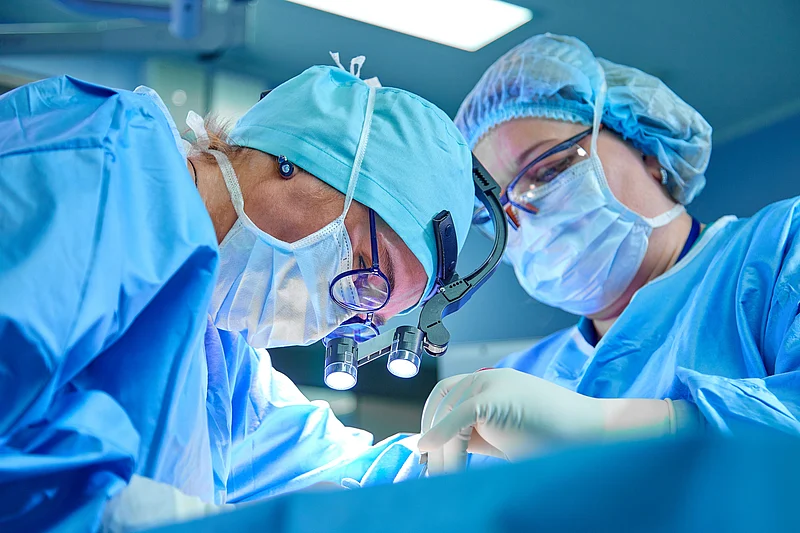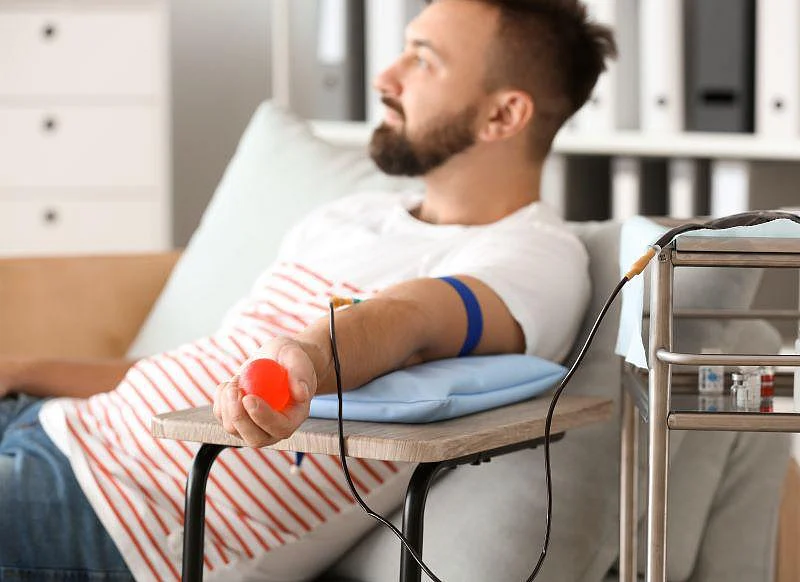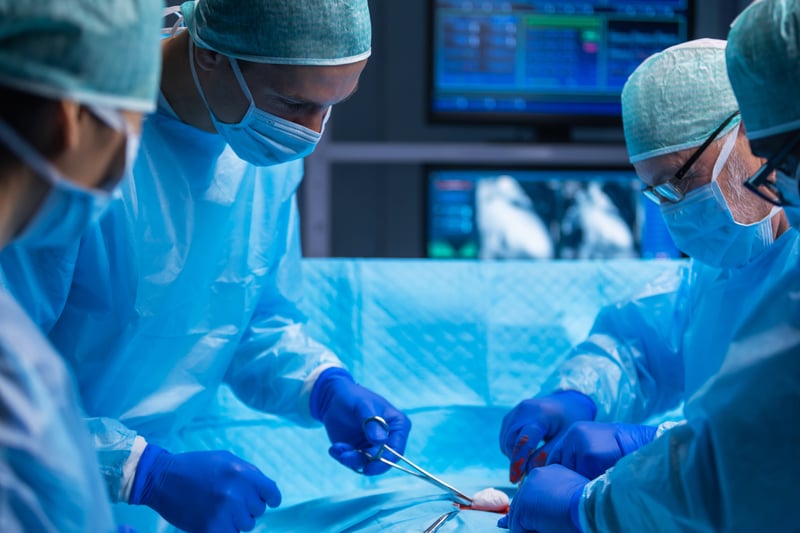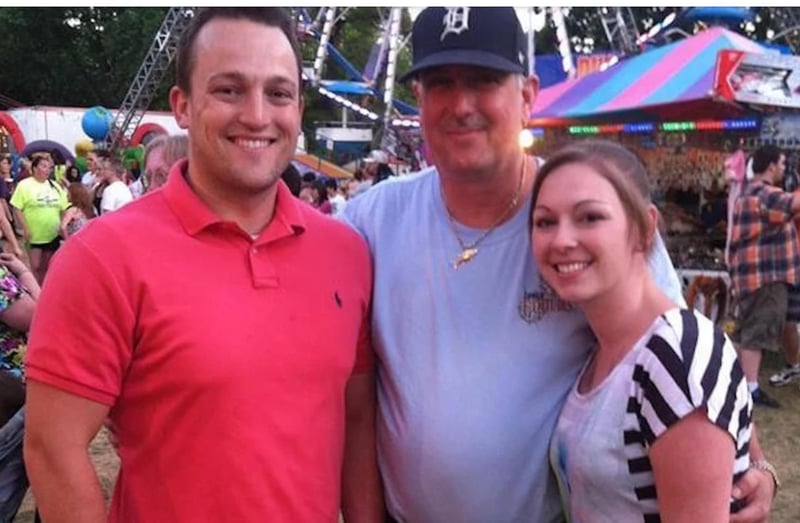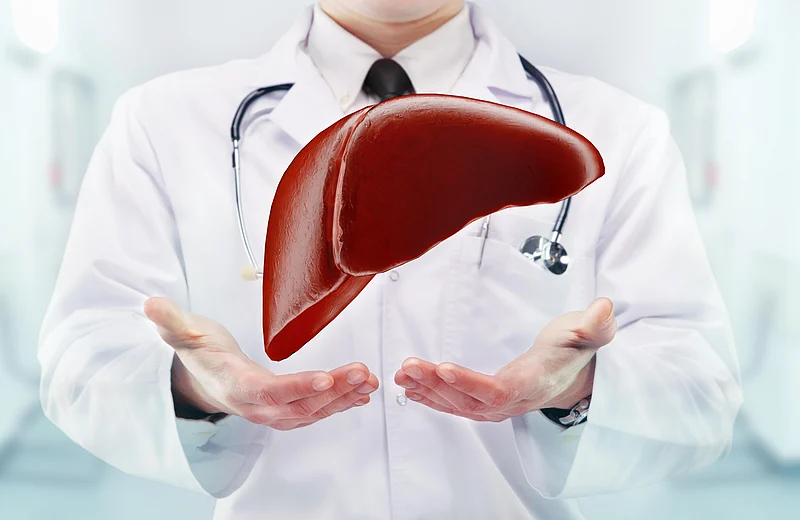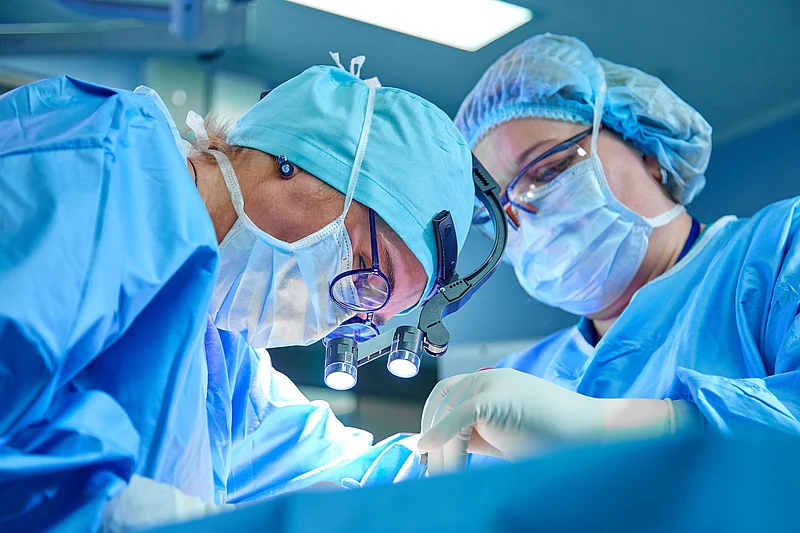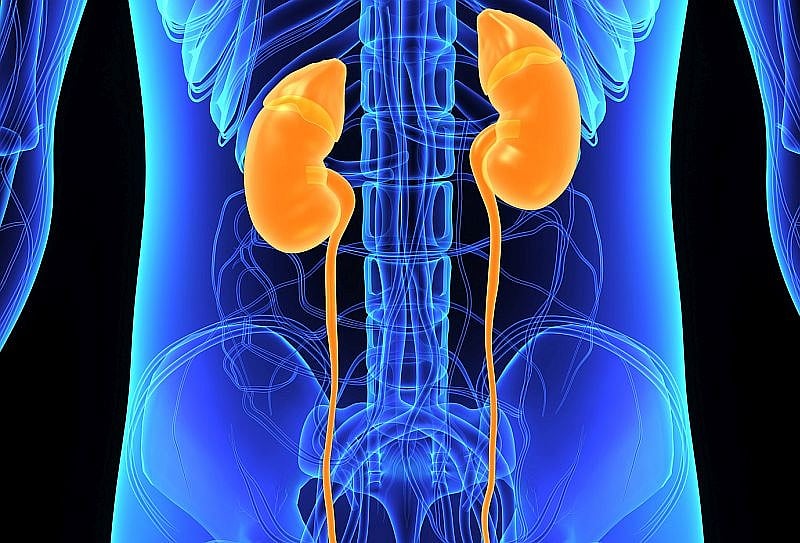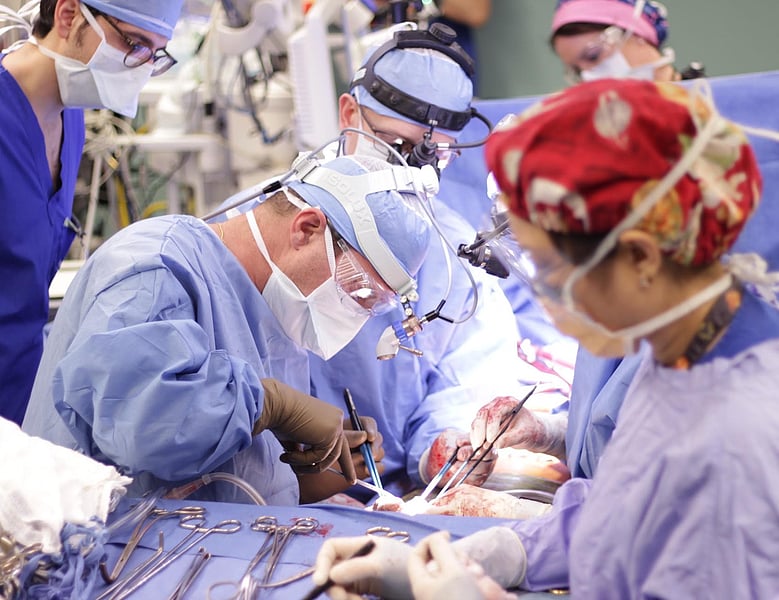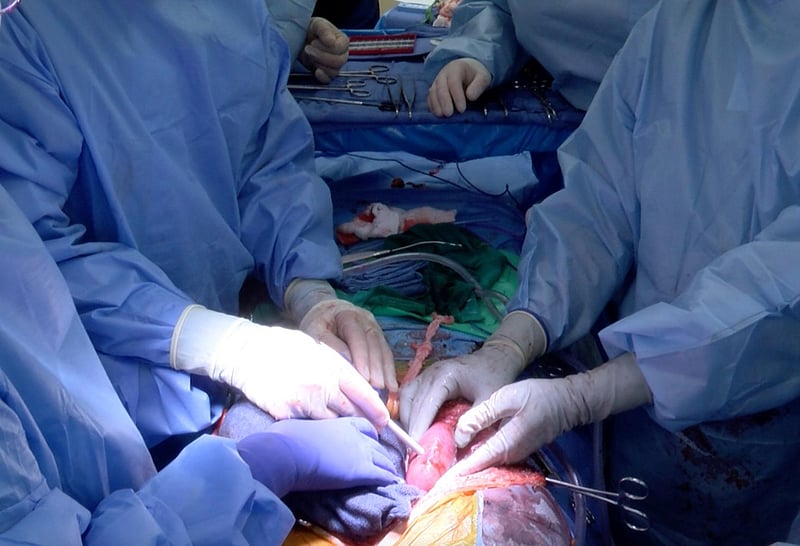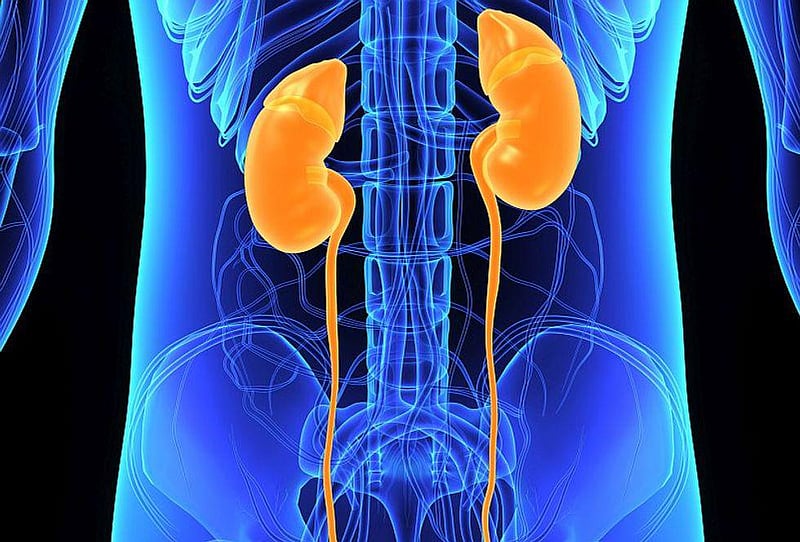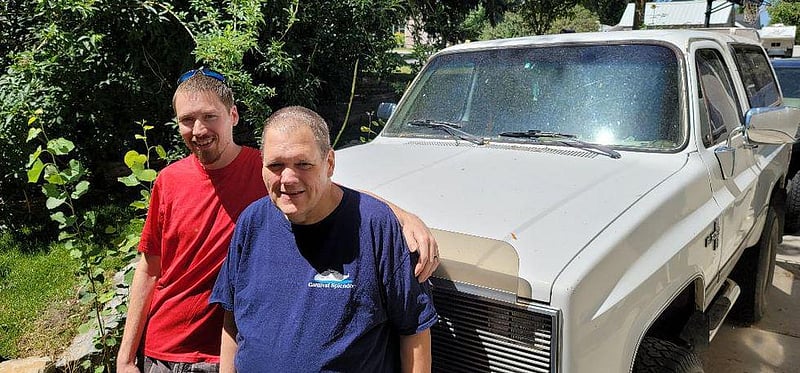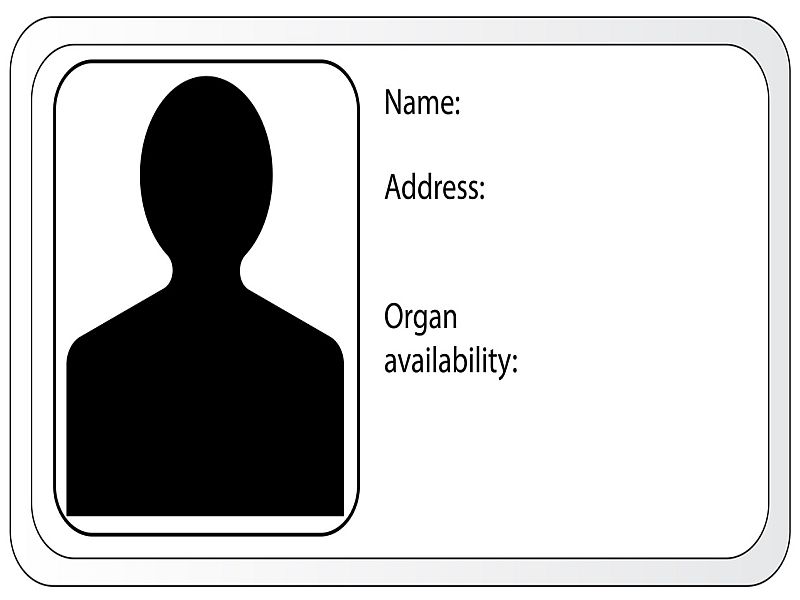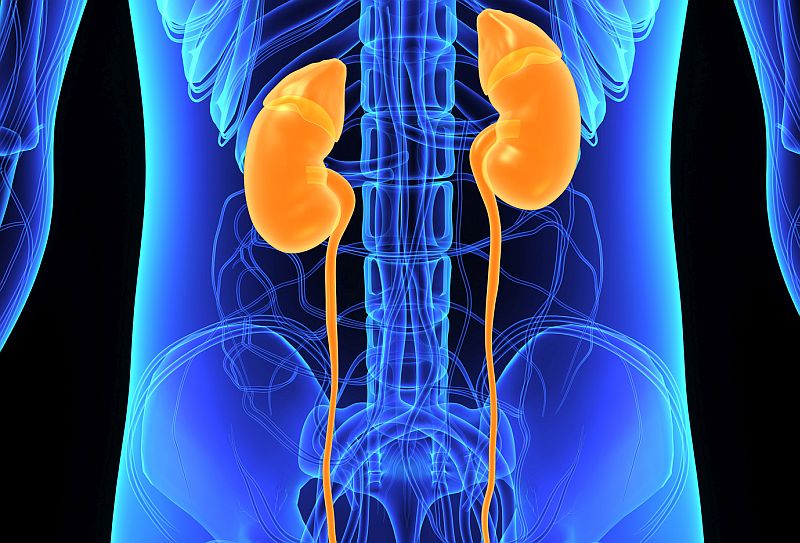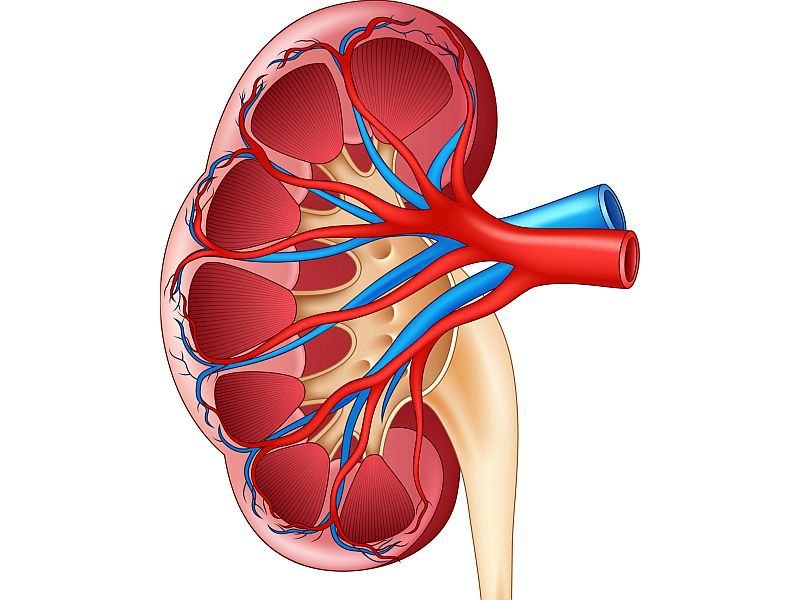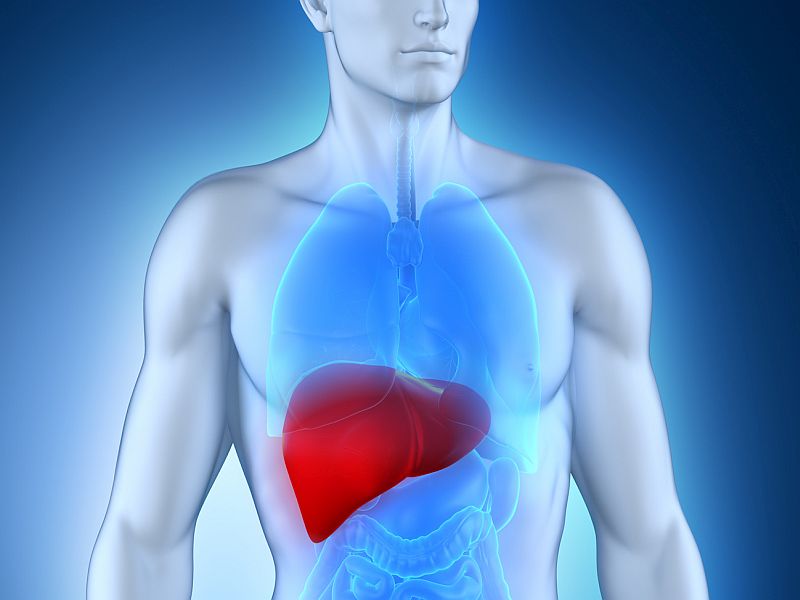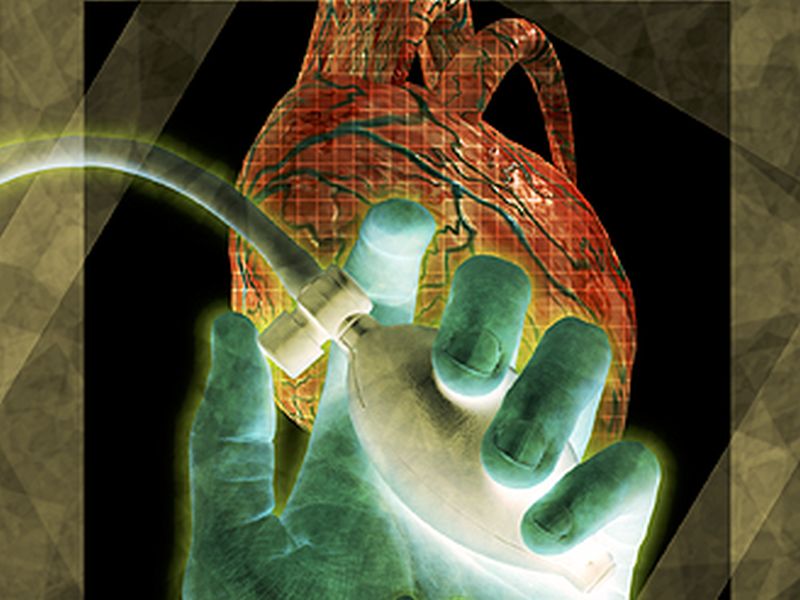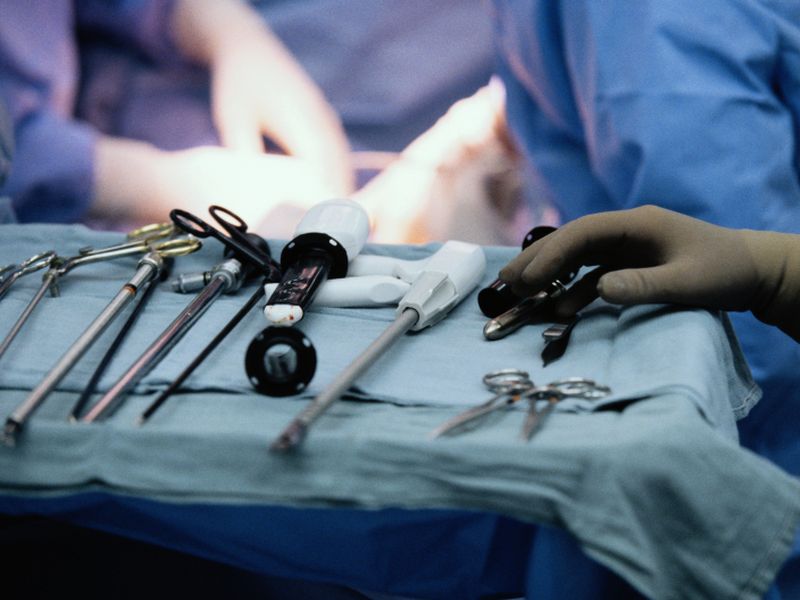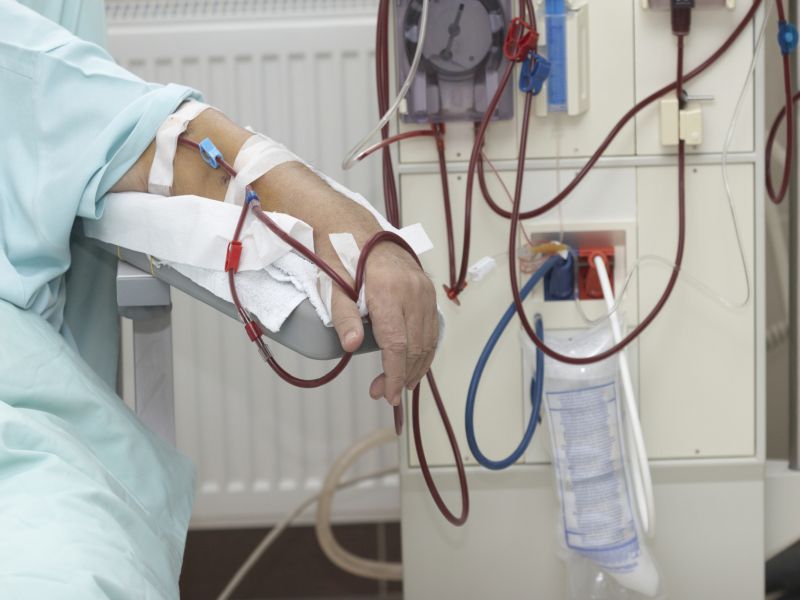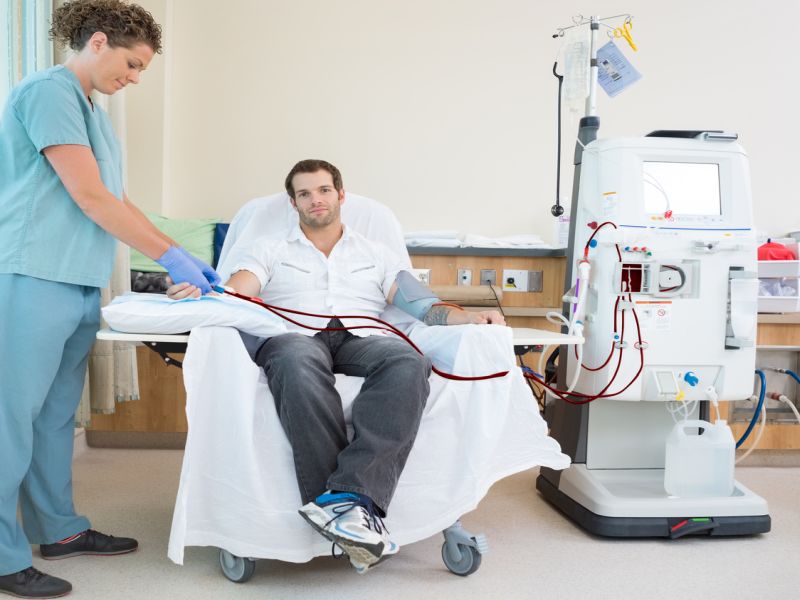Manténgase sano!
Resultados de su búsqueda "Organ Donation".
Resultados de noticias de salud - 61
Rick Slayman, the first person to receive a kidney transplant from a genetically modified pig, headed home Wednesday after faring so well that he was released from the hospital just two weeks after his groundbreaking surgery.
"This moment -- leaving the hospital today with one of the cleanest bills of health I've had in a long time -- is one I wished would come for many years. Now, it's ...
- Robin Foster HealthDay Reporter
- |
- April 4, 2024
- |
- Página completa
The second person to ever receive a transplanted pig heart has died.
Lawrence Faucette, 58, got the transplant just six weeks earlier at the University of Maryland Medical Center in an experimental procedure.
Unfortunately, the heart had been showing signs of rejection in the days before his death, CNN reported.
A new transplant method that "reanimates" donor hearts appears safe and effective, a new clinical trial has found -- in an advance that could substantially expand the supply of donor hearts available in the United States.
The trial tested an approach that allows doctors to transplant hearts from donors who have succumbed to "circulatory death" -- meaning the heart has stopped beating. Tra...
- Amy Norton HealthDay Reporter
- |
- June 8, 2023
- |
- Página completa
Whether the gender of a blood donor could affect the recipient's survival was an unanswered question in medicine. Until now.
"Some observational studies had suggested female donor blood might be linked with a higher risk of death among recipients compared to male donor blood, but our clinical trial found that isn't the case,"co-lead author
Far more people need an organ transplant than there are organs available.
It doesn't have to be that way.
Dr. Johnny Hong, chief of transplantation at Penn State Health's Milton S. Hershey Medical Center in Hershey, explored some of the myths about organ donation.
"We have an organ shor...
- Cara Murez HealthDay Reporter
- |
- April 9, 2023
- |
- Página completa
A single nonprofit has what amounts to a monopoly over all organ transplants performed in the United States, but the federal government said Wednesday that it plans to change that.
The Health Resources and Services Administration (HRSA), which has contracted with the United Network for Organ Sharing (UNOS) to run the Organ Procurement and Transplantation Network for 37 years, announced ...
- Cara Murez HealthDay Reporter
- |
- March 23, 2023
- |
- Página completa
Massachusetts legislators have proposed a bill that would allow prison inmates to donate their organs or bone marrow as a way to trim the length of their sentence.
While some experts wonder about the ethics of such a law and whether it would even be allowed under federal law, a Democratic sponsor of the bill,
- Cara Murez HealthDay Reporter
- |
- February 9, 2023
- |
- Página completa
A new way of allocating donor lungs that eliminates geographical restrictions could save more lives, new research suggests.
In early 2023, the current U.S. system, which looks for compatible candidates within a fixed radius, will be replaced by the Composite Allocation Score. The new score will prioritize a candidate's medical needs.
"The importance of removing the geographical barr...
- Cara Murez HealthDay Reporter
- |
- January 9, 2023
- |
- Página completa
Once a year, giant motorcycle rallies ride into places like Daytona Beach, Fla., and Sturgis, S.D., bringing hundreds of thousands of people, an economic boost -- and a wave of crash-related deaths.
That means more organs available for donation and the need to be prepared, according to a
The difference between age 69 and age 70 is, of course, just a single year.
Yet, organizations that receive organs for transplant patients are less likely to choose one from the older donor, a new study finds.
American organ procurement organization...
- Cara Murez HealthDay Reporter
- |
- November 21, 2022
- |
- Página completa
Less than a year after the first-ever transplant of a pig heart into a human patient, doctors are reporting that the heart showed unexpected changes in its electrical system before the recipient ultimately died.
The changes are not believed to have contributed to the patient's death. But experts said that the observation will help in preparing for any such transplants in the future.
- Amy Norton HealthDay Reporter
- |
- October 31, 2022
- |
- Página completa
Thousands of people die every year while waiting for a liver transplant. Living-donor transplantation holds the potential to save many of these lives, yet remains underused in the United States.
During the procedure, a portion of a donor's liver is removed and transplanted into a person with liver disease. The donor's remaining liver returns to its normal size and capacity within a few mo...
- Denise Mann HealthDay Reporter
- |
- September 27, 2022
- |
- Página completa
Children who need kidney transplants have better long-term outcomes when the donor is a living person and not someone who has died and donated organs, a new study finds.
"The findings of our study should lay to rest any fears and concerns that centers have about accepting organs from unrelate...
- By Cara Murez HealthDay Reporter
- |
- August 17, 2022
- |
- Página completa
Organs from donors who died of drug overdoses helped keep the number of U.S. liver transplants steady during the first year of the COVID-19 pandemic, a new study finds.
"When the pandemic began, we saw no decline in liver transplants, which seemed surprising since many surgeries were canceled or postponed," said lead author Peter Lymberopoulos, a fourth-year medical student at St. George'...
- By Robert Preidt HealthDay Reporter
- |
- May 23, 2022
- |
- Página completa
Even before the pandemic, the demand for donor kidneys far exceeded supply. That shortfall only worsened when hospitals started refusing to use kidneys from COVID-positive donors.
- Alan Mozes HealthDay Reporter
- |
- May 13, 2022
- |
- Página completa
If you're thinking about donating a kidney, new research could alleviate your concerns.
"The results of this study are extremely reassuring for individuals who are considering being living kidney donors. We found that this lifesaving surgery, when performed at experienced transplant centers, is extremely safe," said study co-author Dr. Timucin Taner, chair of transplant surgery at Mayo Cl...
- By Robert Preidt HealthDay Reporter
- |
- April 29, 2022
- |
- Página completa
For those waiting during the pandemic for a new kidney or liver, new research is reassuring: Organs from deceased donors who had COVID-19 did not cause infection in recipients and posed no risk to health care workers.
In a study that began in September 2021, the Duke University School of Medicine team assessed
The first person to receive a pig heart transplant in a groundbreaking procedure performed at the University of Maryland Medical Center in January has died, hospital officials said Wednesday.
David Bennett, a 57-year-old Marylander, suffered from severe heart disease and had agreed to receive the experimental pig's heart after he was rejected from several waiting lists to receive a human ...
- Robin Foster HealthDay Reporter
- |
- March 9, 2022
- |
- Página completa
It's possible to create "universal" donor organs that would eliminate the need to match transplant donor and recipient blood types, researchers report.
"With the current matching system, wait times can be considerably longer for patients who need a transplant depending on their blood type," said senior study author Dr. Marcelo Cypel, surgical director of the Ajmera Transplant Centre, Univ...
- |
- February 17, 2022
- |
- Página completa
In another breakthrough for animal-to-human organ transplantation, U.S. researchers say they've transplanted two genetically modified pig kidneys into a living human.
The recipient was Jim Parsons, 57, a brain-dead man on life support whose family agreed to allow the surgical team at the University of Alabama at Birmingham (UAB) to use his body for this research.
The kidneys functio...
- Ernie Mundell
- |
- January 20, 2022
- |
- Página completa
In a medical first, doctors from the University of Maryland have implanted the heart of a genetically modified pig in a 57-year-old man facing the final stages of heart disease.
The surgical feat, known as
You were lucky enough to receive a kidney years ago, but now it is failing. Is it better to opt for another transplant or go on dialysis?
New research suggests a second transplant may be the better option.
Kidney transplants from deceased donors function for a median ...
- Robert Preidt
- |
- December 28, 2021
- |
- Página completa
A kidney grown in a genetically altered pig functioned normally after being attached to a human patient during a groundbreaking procedure performed by U.S. doctors.
If the technique proves generally successful it could revolutionize organ transplant, greatly expanding the pool of available organs.
The surgery was conducted in September at NYU Langone Health in New York City and invo...
- Robert Preidt and Robin Foster
- |
- October 20, 2021
- |
- Página completa
Men and women have similar reasons for becoming -- or not becoming -- an organ donor, according to a new study. Yet women appear more willing to donate their organs to family members or strangers.
The results, published Sept. 24 in the Journal of the American Heart Association, suggest improving communication among family members about organ donation wishes could help increase ...
- American Heart Association News
- |
- September 24, 2021
- |
- Página completa
Here's some hopeful news for those who have kidney transplants: Long-term survival rates have improved over the past three decades, a review shows.
"There has been a gratifying improvement in kidney transplant survival, both for patients and the kidney graft itself, from 1996 to the current era," said review author Dr. Sundaram Hariharan, a senior transplant nephrologist at the University...
- Robert Preidt
- |
- August 24, 2021
- |
- Página completa
The U.S. Food and Drug Administration plans on Thursday to authorize a third "booster" shot of coronavirus vaccine for people with weakened immune systems, as the highly contagious Delta variant surges across the country.
Expanding the emergency use of the Pfizer and Moderna vaccines should help protect those patients who are considered most vulnerable to COVID-19 infection and most likel...
- Ernie Mundell and Robin Foster HealthDay Reporters
- |
- August 12, 2021
- |
- Página completa
As June 28 approached, David Beverley had been "psyching himself up" for major surgery, as a lifesaving liver donor for his ailing 60-year-old father, Peter.
"But then they called us, literally the day before, and told us: 'We've got to stop this. We don't have any blood.'" the 32-year-old Utah resident said.
That's the moment when both David and Peter came into the crosshairs ...
- Alan Mozes HealthDay Reporter
- |
- August 5, 2021
- |
- Página completa
In a finding that could mean more patients desperate for a heart transplant get a new lease on life, two new studies show that hearts from donors who abused drugs can be safely donated.
In the past two decades, the U.S. opioid crisis has taken the lives of hundreds of thousands of Americans -- often young, otherwise healthy people. One result is that a rising percentage of potential donor...
- Amy Norton HealthDay Reporter
- |
- July 29, 2021
- |
- Página completa
In the world of chronic kidney disease, the dilemma is not uncommon: A relatively young patient with kidney trouble may need a transplant down the road, and an older family member is more than ready to step up. But the need for a kidney transplant, while predictable, is not immediate.
So the older donor doesn't act. Given that donor supply has never met demand, the loss of a golden opport...
- Alan Mozes HealthDay Reporter
- |
- June 24, 2021
- |
- Página completa
Many Americans who stand to benefit most from a kidney transplant may be missing a key window of opportunity, a new study finds.
The study focused on kidney failure patients who would be expected to live many years after receiving a kidney transplant. That generally includes relatively younger people without other major medical conditions.
In 2014, the U.S. kidney allocation system ...
- Amy Norton HealthDay Reporter
- |
- June 18, 2021
- |
- Página completa
A few days after his 74th birthday, Don Stivers received his dream gift -- a new heart.
"I was born with a very lousy heart," he explained. "Growing up, I decided I was going to overcome it and go to the Olympics and be a strong boy. And so everything I did was against doctors' orders. They said don't run, don't do this, but I did anyway, and I would turn blue and pass out, and my mother...
- Sarah Collins HealthDay Reporter
- |
- April 8, 2021
- |
- Página completa
Robert Chelsea needed a new face, having lost most of his in a horrific Los Angeles traffic accident years ago.
But Chelsea is Black, and the process to give him the first-ever face transplant wound up posing novel challenges for his doctors, according to a new report.
It took four times as long to find Chelsea a suitable donor than it typically does for white patients, doctors said...
- |
- March 17, 2021
- |
- Página completa
Despite widespread efforts to increase access and awareness, new research shows there's been virtually no change in the number of people on waiting lists for potentially lifesaving kidneys over the past two decades.
For their study, scientists analyzed information on more than 1.3 million adults with kidney failure listed in the United States Renal Data System from 1997 to 2016, and found...
- Denise Mann HealthDay Reporter
- |
- February 12, 2021
- |
- Página completa
Joe DiMeo's life changed forever when he fell asleep at the wheel on U.S. Route 22 in New Jersey on July 14, 2018.
The horrific crash left him with third-degree burns on 80% of his body and a grim prognosis.
Now, more than two years later, DiMeo, 22, is the recipient of the world's first successful double hand and face transplant, and on the road to recovery.
The historic surg...
- Denise Mann HealthDay Reporter
- |
- February 3, 2021
- |
- Página completa
'Donorcycles:' That what hospital trauma staff call motorcycles, since riding one without a helmet greatly raises the odds the driver will become an organ donor far too soon.
A new study out of Michigan supports the grim nickname: It found that organ donations among unhelmeted riders rose three-fold after the state repealed its mandatory helmet law.
"From a public health persp...
- Alan Mozes
- |
- December 8, 2020
- |
- Página completa
About one in five Americans waiting for a liver transplant dies before getting the organ. Their odds might be better if more people knew they could donate a portion of their liver in a process called living liver donation.
Doctors at the Mayo Clinic in Rochester, Minn., want to raise awareness of these living liver transplants.
"About 12,000 to 13,000 people are on the liver transp...
- Cara Murez
- |
- November 17, 2020
- |
- Página completa
U.S. and Canadian restrictions on cornea donations from gay and bisexual men prevent thousands of vision-restoring transplants and need to be changed, researchers say.
A corneal transplant can cure some forms of blindness and visual impairment. The United States bans men from donating if they have had gay sex in the past five years; Canada has a 12-month restriction.
The sa...
- Robert Preidt
- |
- September 29, 2020
- |
- Página completa
Transplants of organs from dead donors haven't slowed during the coronavirus pandemic, but living donor transplants remain suspended in many places, an expert says.
Dr. Fauzia Butt, a transplant surgeon at Penn State Health Milton S. Hershey Medical Center in Hershey, Pa., also said that organ donation and transplant surgery are safe during the pandemic.
"We've put protocols...
- Robert Preidt
- |
- September 17, 2020
- |
- Página completa
Hearts donated by severely obese donors aren't more risky for recipients than hearts from people who aren't obese, a new study indicates.
"These findings were somewhat surprising because the severely obese donors did tend to have more medical problems, such as diabetes and high blood pressure, than the non-obese donors," said study author Dr. Leora Yarboro. She's an associate professo...
- Robert Preidt
- |
- September 16, 2020
- |
- Página completa
New hepatitis C medications are allowing people to receive a kidney transplant from a deceased donor who had the liver disease -- a strategy aimed at getting more lifesaving organs to patients languishing on waitlists.
Two new studies are highlighting the promise of the approach, showing that if patients are given the drug Mavyret, they can safely receive the kidneys and the organs fu...
- Amy Norton
- |
- September 8, 2020
- |
- Página completa
The coronavirus pandemic has affected all areas of medical care, and a new study finds it has delayed potentially life-saving organ transplants.
Across the United States, transplants from deceased donors dropped 51% from early March to early April, amid the COVID-19 outbreak, the researchers found. In France, meanwhile, those procedures plummeted 91%.
Experts said th...
- Amy Norton
- |
- May 12, 2020
- |
- Página completa
Many of the donor kidneys that are discarded each year in the United States could instead be effectively transplanted, a large new study suggests.
At issue are kidneys from deceased donors that are acutely injured. Right now in the United States, about 30% of those organs are discarded, rather than being given to patients on transplant waitlists.
But the new study found ...
- Amy Norton
- |
- January 16, 2020
- |
- Página completa
Researchers report they have developed a machine that can repair injured livers and keep them alive outside the body for up to a week.
They said the machine could one day increase the number of livers available for transplant and save the lives of many people with severe liver diseases or cancer.
Until now, it was only possible to store livers safely outside the body for a f...
- Robert Preidt
- |
- January 14, 2020
- |
- Página completa
One-year survival rates are similar for transplant patients who receive a heart from a donor with hepatitis C or one without the infectious virus, a new study finds.
The researchers suggest that using hearts from donors with hepatitis C, a viral infection of the liver, may be safe and could help reduce a U.S. organ shortage.
The study included nearly 7,900 adults with heart ...
- Robert Preidt
- |
- January 13, 2020
- |
- Página completa
Racial bias among health care providers limits black Americans' odds of receiving a heart transplant, a new study finds.
Researchers asked 422 U.S. physicians, nurses and other hospital decision-makers to review the hypothetical cases of black men and white men with heart failure and to decide if the patients should be referred for a heart transplant.
The hypothetical cases ...
- Robert Preidt
- |
- November 12, 2019
- |
- Página completa
A U.S. veteran who received a total penis and scrotum transplant last year is faring better than anyone expected, his doctors say.
In March 2018, the soldier -- who was severely wounded after stepping on a bomb in Afghanistan -- underwent the world's first total penis and scrotum transplant. A team of 11 surgeons at Johns Hopkins University in Baltimore performed the 14-hour procedure...
- Amy Norton
- |
- November 6, 2019
- |
- Página completa
Many U.S. transplant centers accept less-than-ideal kidneys from deceased donors, but their willingness to use such organs varies widely.
That's the conclusion of a study that examined the use of deceased-donor kidneys at 182 transplant centers nationwide.
Researchers found big differences among them in use of less-than-ideal kidneys that was not fully explained by the size ...
- Robert Preidt
- |
- October 21, 2019
- |
- Página completa
There's good news for people with HIV who get a kidney from a donor who also has HIV: A new study reports high five-year survival rates.
"A growing number of people with HIV have a need for kidney transplants. Unfortunately, these gifts of life are too often in short supply," said Dr. Anthony Fauci, director of the U.S. National Institute of Allergy and Infectious Diseases.
- Steven Reinberg
- |
- October 2, 2019
- |
- Página completa
In a finding that suggests money may sometimes guide whether someone gets a new kidney, researchers report that patients at U.S. for-profit dialysis centers are less likely to receive a transplant.
"For-profit dialysis facilities have a higher profit margin when they have more patients on dialysis," while nonprofit centers don't have "the same emphasis on profit margins," explained s...
- Robert Preidt
- |
- September 17, 2019
- |
- Página completa
When it comes to using kidneys from deceased donors, the United States might want to follow France's example.
That's according to new research that found kidneys from older donors are much more likely to be used for transplants in France, and if more of those "lower-rated" kidneys were used in the United States, tens of thousands more Americans would receive a kidney transplant.
...- Robert Preidt
- |
- August 27, 2019
- |
- Página completa


